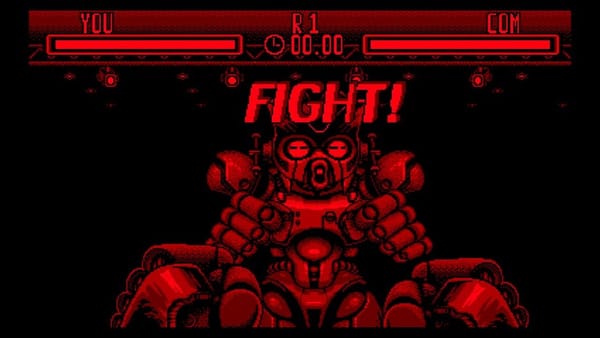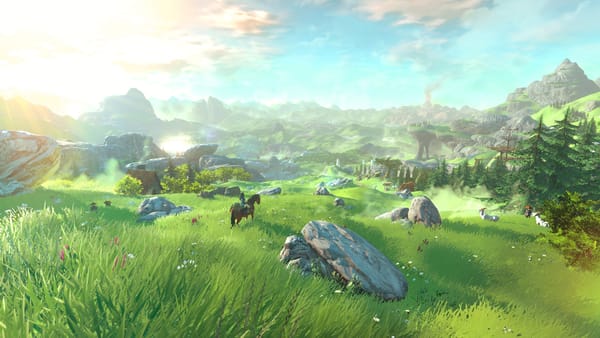#10: Channel hopping
With the internet the way it is these days, I’m a firm believer that game companies should consider doing their own in-house editorial work. (With my consultant’s hat on, I’ve helped some make it happen.) Today's online media is so data-driven that it’s harder than ever for an under-the-radar game to get coverage; if it’s not guaranteed to bring in traffic, it’s difficult for websites to justify doing the work. You might as well just do it yourself.
There are limits to that concept, however. If you’re an indie developer with an established community, a bigger studio working on a live-service game with a deeply invested audience, or are working in a genre or sector that the traditional press struggles to cover, then yes, I think you should find as many ways to tell your story as possible. If, however, you’re the head of game development at a multibillion dollar company that makes the most sought-after console on the planet, and produces games that sell tens of millions of copies — like, say, Hermen Hulst, who’s just given an interview to the PlayStation Blog and precisely no one else — I think you can probably get the word out in the traditional way. I reckon most outlets will probably take your call.
Early in my career, I remember a colleague explaining that the games press has no right to access. Game companies are not like political parties: they have no duty to be transparent, no obligation to subject themselves to thirdparty scrutiny. (I should note that this advice was given to me in 2012, and the analogy has not aged well.) It is up to them who they speak to, and when. Still, I find the notion of the head of PlayStation Worldwide Studios avoiding scrutiny in this manner rather disrespectful — and a little bit risky, too.
Sure, maybe some outlets would have done much the same job. They’d have got in, got a bunch of headlines — the new God Of War’s been delayed, some previously assumed PS5 exclusives are coming to PS4 too, 25 games are in development across the group, etc — then said thank you and walked out. But the journalist’s role is to poke holes, to follow up, to nudge an interviewee off script with a question they haven’t prepared for. Naturally, there’s none of that here. If Sony is still committed to Japan, as Hulst says, why did it shutter Japan Studio? Why, barely a year after Jim Ryan said Sony “believes in generations… it is time to give the PlayStation community something new, something different, that can really only be enjoyed on PS5” is it now making cross-gen firstparty games? These are questions that, a few months after spending the best part of £500 on a new console on the promise of hot new exclusives from Sony’s talented internal studios, I would quite like to hear the answers to.
What annoys me about this interview is how little we learn about Hulst himself. He holds one of the most important jobs, at one of the most important companies, in the industry. He is a relatively recent arrival and he has barely spoken publicly since his appointment. Games are made by, and about, people. But when the marketing department runs something like this from start to finish, as has surely happened here — I can smell a prepared answer from across a busy show floor — games become mere products made by faceless corporations. The soul is sucked out of it all. Everything becomes rather dull.
I understand why a company would prefer it this way, of course. Why take the risk of your carefully honed messaging falling apart because of the boss gave a bad answer to a difficult question? And why worry about the optics when the games press will dutifully report all the headlines anyway? Fair enough, but the problem with that approach is that when you don’t let the press challenge you in the room, they and their audience will do it online instead — and you lose the opportunity to put across your side of a story that’s playing out very differently than you’d planned. Sony may think it is taking control of something here, but if anything it’s giving it away, and sowing distrust in the process.
MORE!
Rumours continue to swirl about the imminent announcement of a Switch Pro — apparently well in advance of not-E3 so that developers can spend not-E3 talking about the games they’re making for it. Fingers crossed.
Not-E3’s bloated line-up of livestreams has swollen further with the arrival of Razer.
Riot Games’ Valorant — a game I wrote off as a cynical marriage of Counter-Strike and Overwatch that has since amassed over 14 million players, oops — is headed to mobile.
A Minions-themed endless runner I have honestly never heard of has passed one billion downloads. Really just exposing myself as a fraud today, aren’t I.
Cheerio!





